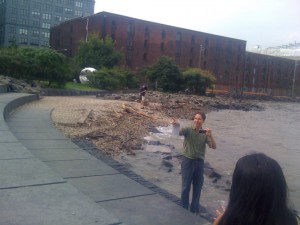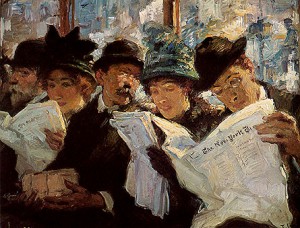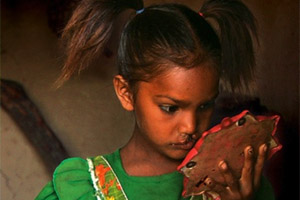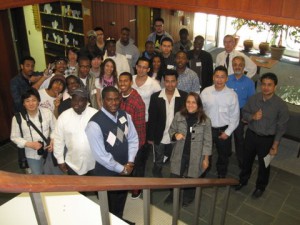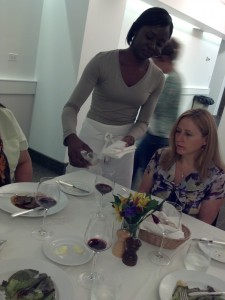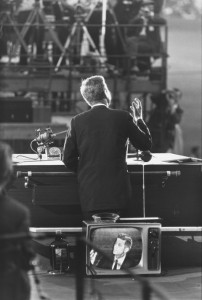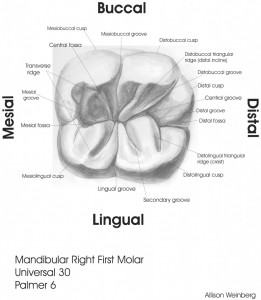Professor Paul King heads a unique learning community comprised of two classes, ARCH 1200 Architectural Drawing II and ARCH 1290 Architectural CADD, both taught by him. Using the learning community framework to combine the two classes offers increased one-on-one contact hours between professor and students, and it allows for greater flexibility with lessons. Both courses share a common class website on the OpenLab that links to team pages for group projects. Professor King applies numerous innovative pedagogical strategies to his courses, including a motivating field trip early in the semester that allows students to apply practical, disciplinary knowledge as well as become better acquainted with their teammates.
A field trip to the nearby Brooklyn waterfront launches a two-part assignment for which students are assessed for individual work and a group presentation. Professor King uses a detailed worksheet to transform a field trip to Brooklyn Bridge Park into a site visit. Students are asked to present a preliminary subject for an individual case-study that they continue working on during the semester. Working in teams, students prepare slideshow presentations that present team members and documentation of architectural structures related to “movement,” “expansion joints,” “points of failure,” “retrofits,” and things that need improvement in design. The early field trip enhances class objectives by encouraging students to discover and apply architectural concepts in real settings. Moreover, the class outing creates an opportunity for students to interact beyond classroom walls to foster group dynamics.

